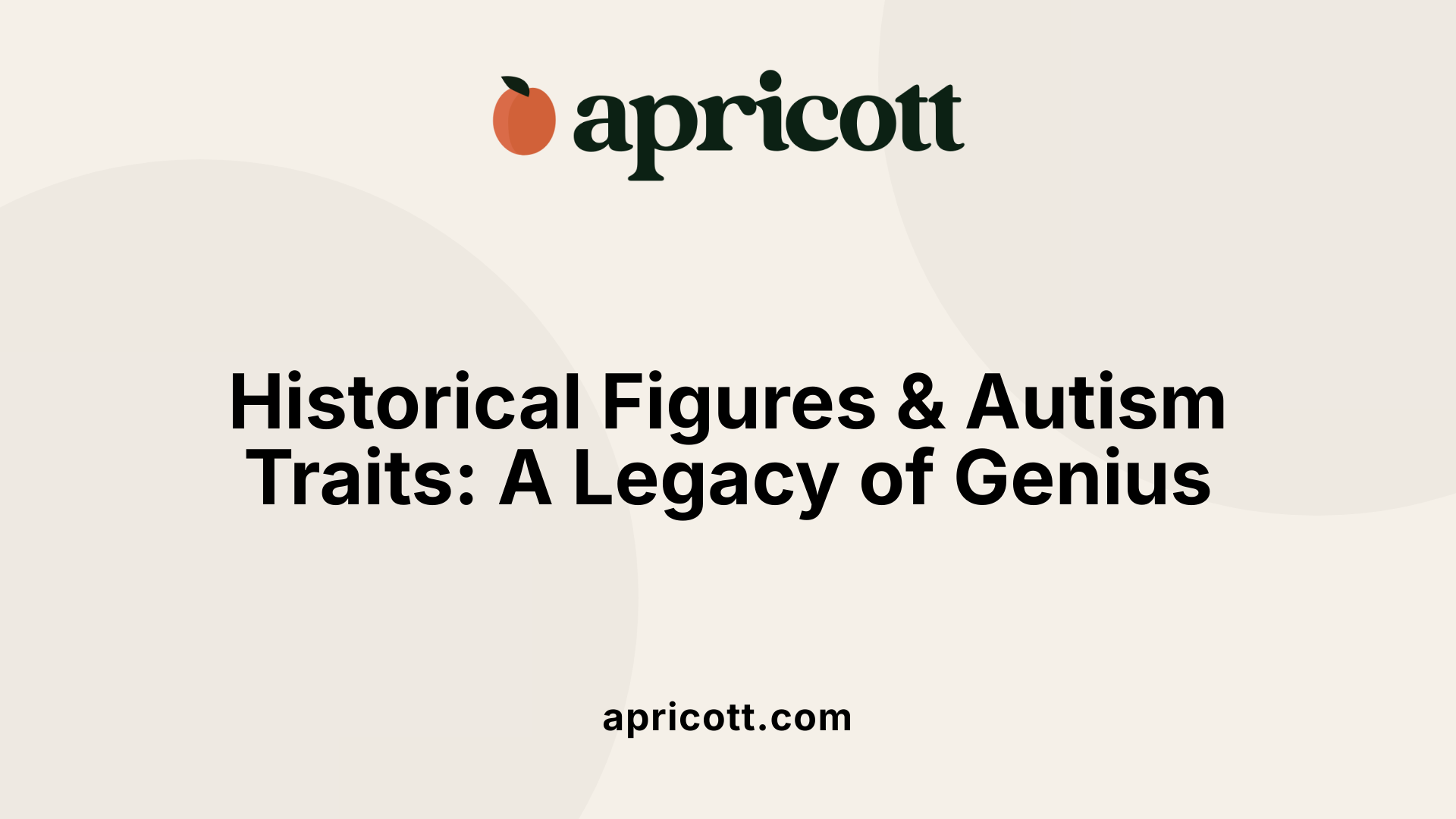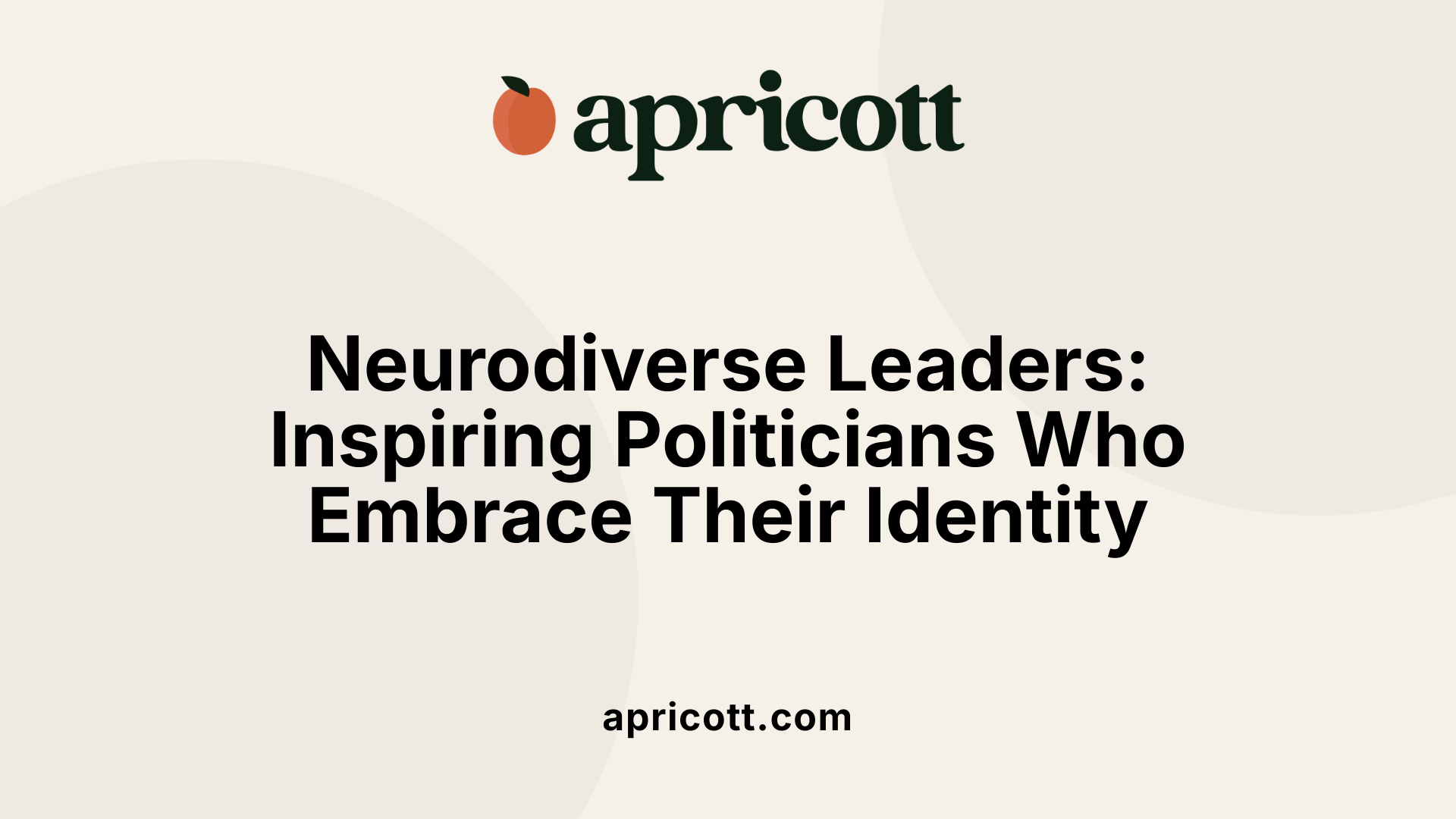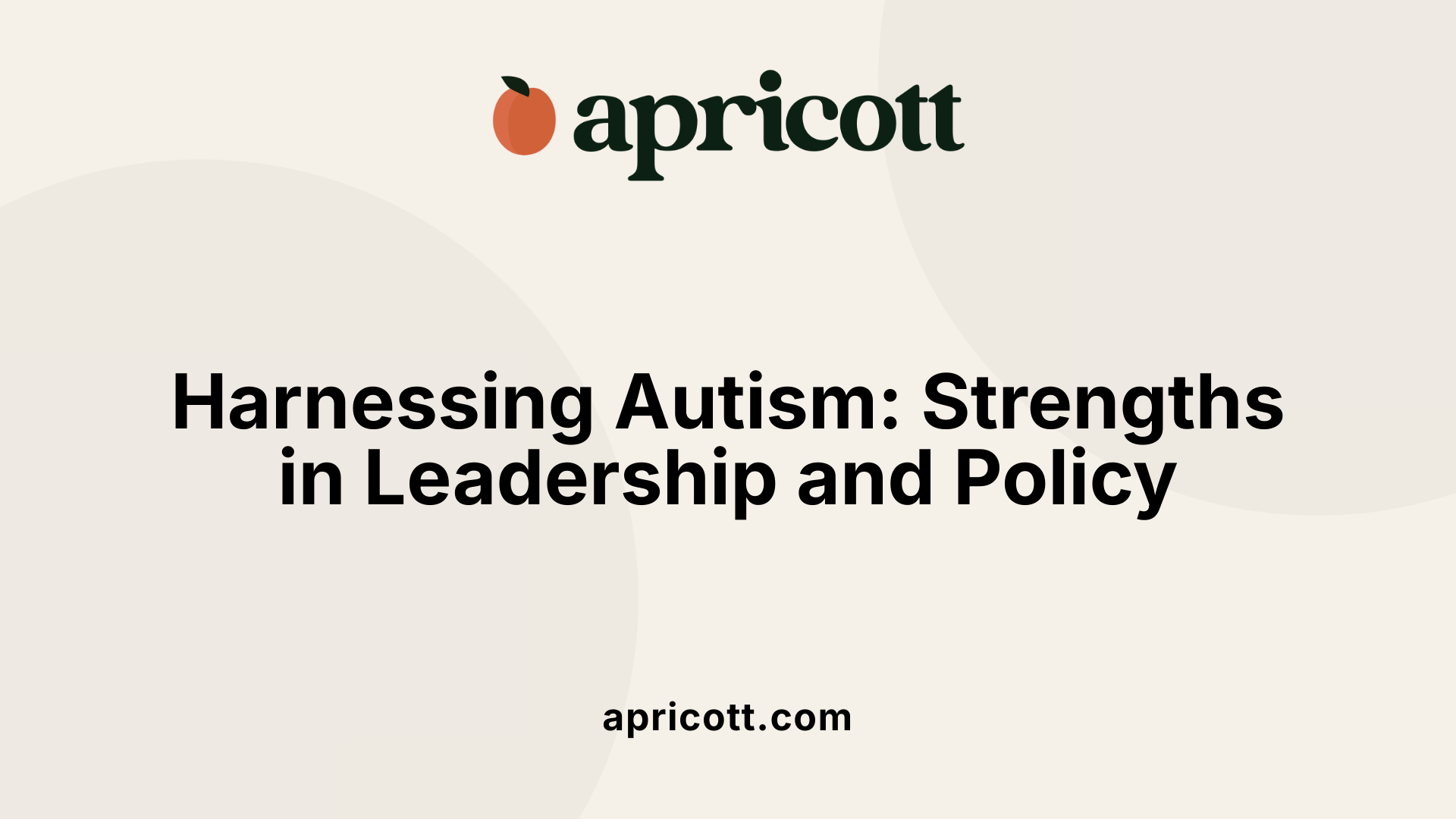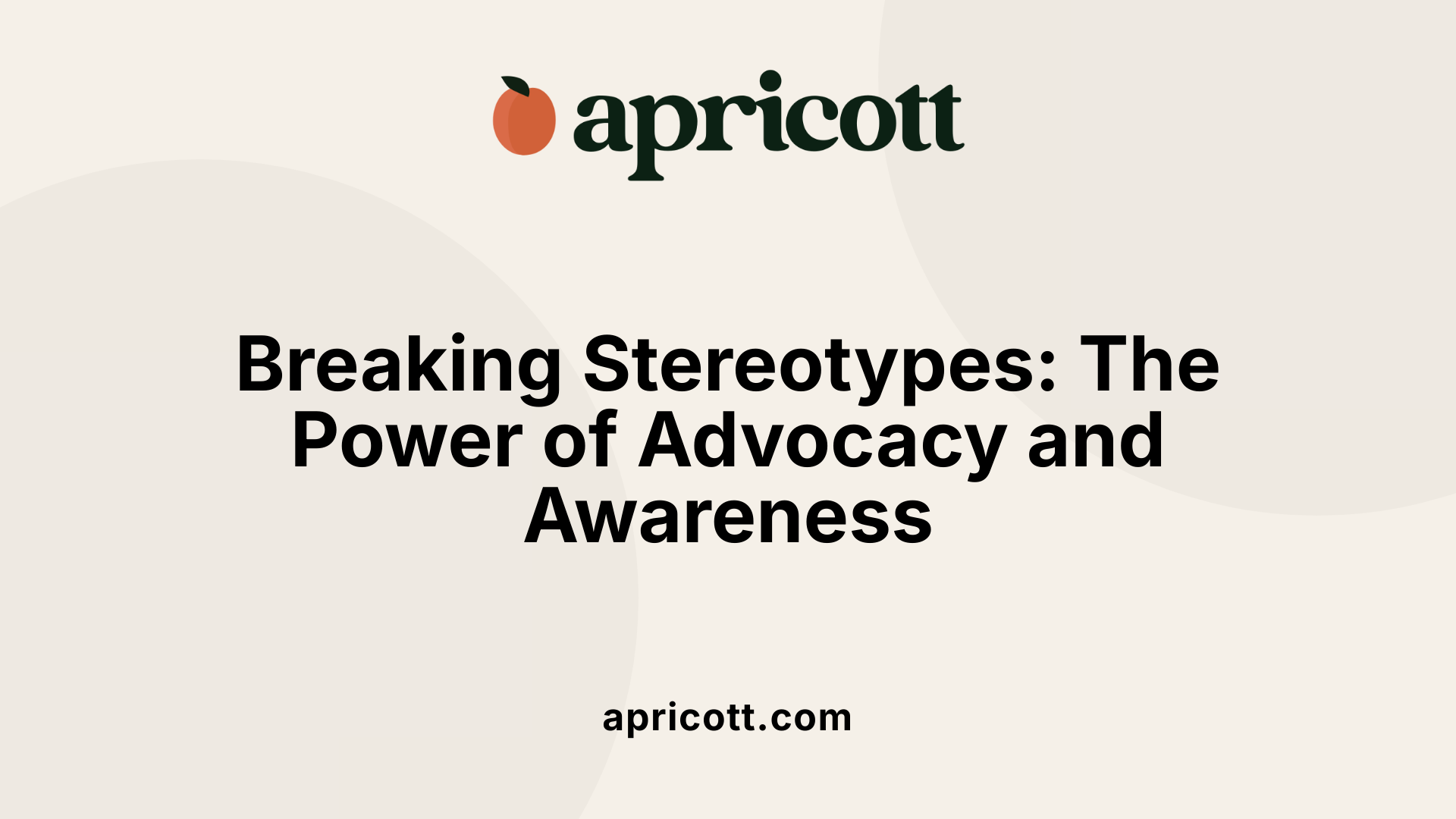August 20, 2025
Unveiling Neurodiversity in the Political Arena
Autism spectrum traits are increasingly recognized as aspects of human diversity that can contribute uniquely to leadership and innovation. Many influential figures in history and contemporary politics are believed to have exhibited traits associated with autism, influencing their contributions and shaping their careers. This article explores notable politicians and public figures with autism, shedding light on their traits, achievements, and the importance of awareness in fostering an inclusive society.
 Many renowned historical figures and modern leaders display behaviors and traits that suggest they may have been on the autism spectrum. These individuals often exhibited extreme focus, intense routines, social difficulties, and unique ways of thinking—characteristics aligned with autism.
Many renowned historical figures and modern leaders display behaviors and traits that suggest they may have been on the autism spectrum. These individuals often exhibited extreme focus, intense routines, social difficulties, and unique ways of thinking—characteristics aligned with autism.
For instance, Albert Einstein, one of the greatest scientists in history, showed delayed speech development, hyperfixation on complex problems, and social difficulties during his childhood. Similarly, Sir Isaac Newton demonstrated exceptional focus, routines, and social withdrawal, traits that some experts believe could indicate autism.
Other notable figures include Leonardo da Vinci, who exhibited ascetic routines and intense interests in his crafts. Wolfgang Amadeus Mozart was sensitive to loud noises, had a short attention span, and engaged in repetitive behaviors like cartwheels and meowing loudly. Charles Darwin showed signs of social retreat and obsession with specific topics, which some interpret as signs of autism.
Retrospective analysis of these behaviors reveals a pattern of traits such as:
While these figures lived before autism was formally recognized, recognizing these behaviors helps us appreciate the diverse ways mental and behavioral traits can contribute to extraordinary achievements.
| Historical Figures | Traits that Suggest Autism | Notes |
|---|---|---|
| Albert Einstein | Delayed speech, hyperfocus, social difficulties | Speculated based on childhood behaviors and Einstein’s own accounts |
| Isaac Newton | Focused routines, social withdrawal | Based on historical accounts of his reclusive habits |
| Leonardo da Vinci | Ascetic routines, intense focus | Descriptions of his obsessive pursuits |
| Wolfgang Mozart | Sensitivity to noise, repetitive behaviors | Accounts of his hyperactivity and sensitivities |
| Charles Darwin | Social retreat, obsessive interest | Observed traits in his writings and behaviors |
| Emily Dickinson | Reclusive, unique interests | Scholars suggest traits aligned with autism |
Although these descriptions are retrospective, they highlight how traits associated with autism have been present in some of the most influential minds in history. Recognizing these traits fosters a greater understanding of neurodiversity and the varied paths to genius.
Ultimately, it’s important to appreciate that these individuals achieved remarkable successes while exhibiting behaviors that, today, might be understood as autism spectrum traits. Awareness and acceptance continue to grow, helping us celebrate the diversities that contribute to human innovation and achievement.

Many politicians on the autism spectrum display a set of distinctive traits that influence their leadership style and decision-making. These individuals often demonstrate an intense focus and dedication to their causes, coupled with a strong sense of justice and moral clarity. Such qualities can serve as strengths, helping them to persist through complex policy challenges and contribute innovative ideas.
However, they may also exhibit social challenges such as insensitivity, rigidity, and a preference for routines. These traits sometimes result in perceived aloofness or bossiness, which can impact their relationships within political environments. Many exhibit behaviors like strict adherence to rules, literal interpretation of language, and a tendency to behave in a dominant manner. Their moral judgments are often rule-based rather than driven by emotional considerations, which can be advantageous in maintaining consistency and fairness.
Traits like high attention to detail, analytical thinking, and problem-solving skills are common among autistic politicians. These abilities can be highly beneficial in drafting legislation, policy analysis, and strategic planning.
It is important to understand that experiences vary widely, and not all individuals with these traits identify or function as autistic. Stereotypes should be avoided; instead, a nuanced perspective helps in appreciating the diverse qualities they bring to leadership roles.
Autism influences a politician’s communication style and their approach to interactions in the workplace. Some may prefer direct communication and may struggle with social nuance or large group settings, which can be both a challenge and a strength. Their decision-making processes tend to be highly logical and detail-oriented—traits that can lead to effective, well-reasoned policies.
However, the high-pressure and socially complex nature of politics can pose difficulties. Stress from workplace politics—such as navigating social expectations and managing burnout—may impact mental health. Many autistic politicians experience heightened stress in highly political or hostile environments, which can increase risks of burnout, depression, or withdrawal.
Workplaces that lack support or fail to understand neurodiversity can create additional barriers, leading to bullying, job insecurity, and premature departure from politics. To foster meaningful participation, it is crucial to develop systems that promote fairness, transparency, and support for neurodiverse individuals.
Supporting autistic politicians and staff not only benefits individuals but also enriches the political landscape with diverse perspectives and problem-solving approaches. Recognizing and accommodating their needs can help maximize their contributions to policymaking and governance.

Yes, numerous well-known individuals in public life openly share their autism diagnoses, helping to raise awareness and challenge misconceptions. Greta Thunberg, perhaps the most prominent climate activist from Sweden, has spoken openly about her Asperger’s syndrome. She considers it her 'superpower,' providing her with intense focus and a clear perspective that fuels her activism.
While Thunberg is not a politician, her influence extends into the political arena by shaping policies and global discussions on climate change. Other figures like Alexis Wineman, who served as Miss Montana, and Aoife Dooley, an accomplished author and illustrator, have shared their personal journeys with autism publicly. These profiles serve to humanize neurodiversity and inspire others.
Biographies and profiles of these individuals often highlight how their autism traits—such as deep focus, sensory sensitivities, or social challenges—contribute positively to their careers and advocacy. Their stories demonstrate that neurodivergence is compatible with leadership, creativity, and influence.
Prominent political figures play a vital role in fostering greater understanding of autism. When they openly discuss their own experiences or actively support neurodivergent communities, they challenge harmful stereotypes and promote acceptance.
For instance, endorsements from politicians for inclusive policies can help elevate the neurodiversity movement. Recognizing neurodiversity as a natural human variation rather than a disability shifts societal narratives towards acceptance.
Legislation aimed at anti-discrimination, workplace accommodations, and supporting neurodivergent individuals in education and employment can stem from political advocacy. Links between public policies and neurodiversity awareness influence societal attitudes considerably.
Influential figures setting an example by sharing their stories or supporting autism initiatives contribute to destigmatization. Their visibility encourages media coverage and discussion, creating a more inclusive environment.
Overall, political endorsement of neurodiversity not only raises awareness but also drives practical changes that improve the lives of many individuals on the spectrum. Societal acceptance grows when those in positions of influence prioritize understanding, acceptance, and proper support frameworks.

Politicians with autism often display a set of traits that can strengthen their leadership qualities. These individuals tend to have an intense focus and commitment to their beliefs and policies. Their dedication, combined with a strong sense of justice, can make them passionate advocates and determined decision-makers.
Many also show remarkable attention to detail and analytical thinking, allowing them to evaluate complex issues thoroughly. This ability can lead to innovative problem-solving approaches that benefit their constituencies.
However, some traits associated with autism, such as social insensitivity, rigidity in routines, and difficulties in understanding social cues, may influence how these politicians interact with colleagues and the public. Behaviors like aloofness, or acting in a bossy or dominant manner, can sometimes be mistaken for arrogance but may actually stem from their natural tendencies.
Historically, leaders with traits similar to autism have demonstrated a focus on rules, logic, and structure in their decision-making. This can enhance their ability to establish consistent policies and governance.
It is crucial to avoid stereotypes, recognizing the immense diversity among autistic individuals. Many use their unique perspectives to drive positive change in political strategies and leadership.
Autism influences a politician’s communication style, decision-making capabilities, and interaction with others. For some, these traits can serve as advantages. For example, straightforwardness, honesty, and a focus on facts can enhance credibility and trustworthiness.
Nevertheless, these same traits may pose challenges in highly social, dynamic political environments where diplomacy and emotional intelligence are valued. Difficulties in understanding social cues might affect their ability to navigate complex negotiations or build coalition relationships.
The high-pressure environment of politics can lead to stress and burnout for autistic politicians. The necessity of engaging in routine social interactions, managing public perception, and responding to fast-paced events can be overwhelming.
Workplaces in politics, especially if lacking proper support and understanding, may become hostile or unaccommodating. This can result in increased stress, workplace bullying, unemployment, or career stagnation for autistic individuals.
Creating fair, transparent, and supportive systems within political institutions is essential. These initiatives help autistic politicians and staff to thrive and contribute effectively, capitalizing on their strengths while mitigating challenges.
| Trait/Attribute | Description | Potential Impact on Politics |
|---|---|---|
| Analytical thinking | Ability to process complex information deeply | Enhances policy analysis and problem solving |
| Focus and dedication | Persistent commitment to goals | Drives long-term projects and reforms |
| Attention to detail | Precision in work | Improves legislative accuracy and planning |
| Rigidity and routines | Preference for structured environments | Ensures consistency but may reduce flexibility |
| Social insensitivity | Challenges in social cue recognition | May hinder coalition-building or public outreach |
| Honesty and straightforwardness | Clear and direct communication | Builds trust but can be perceived as blunt |
| Innovative problem-solving | Creative solutions | Addresses complex societal issues with new ideas |
| Potential challenges | Social difficulties, rigidity, stress management | Need for supportive workplace adaptations |
Understanding and embracing these traits can help in creating an inclusive environment that recognizes the valuable contributions of autistic individuals in leadership roles. With proper support, their unique strengths can be harnessed to foster effective, fair, and innovative governance.
Many revered historical personalities are believed to have exhibited traits consistent with autism, based on anecdotal evidence, personal writings, or behavioral analysis. Notable among them are Sir Isaac Newton, Albert Einstein, Leonardo da Vinci, and Wolfgang Amadeus Mozart.
Newton was known for his routines, focus on specific interests, and social awkwardness, which align with autism spectrum features. Einstein, with delayed speech in childhood, intense focus on his scientific work, and difficulties with social interactions, is often thought to have shared traits. Da Vinci’s obsession with detailed sketches, routines, and unconventional social behaviors also suggest possible autism traits.
Similarly, Wolfgang Mozart displayed sensitivity to loud noises, a short attention span, and behaviors such as performing cartwheels or making loud noises, indicating sensory sensitivities and obsessions associated with autism.
These traits are identified retrospectively through behavioral and personality analysis, but there is no formal diagnosis, as these individuals lived before autism was recognized as a condition. Their extraordinary achievements demonstrate that neurodiversity does not hinder, and may even enhance, creative and scientific pursuits.
Today, many individuals in the public eye have shared their autism diagnosis or self-identify as autistic, showcasing how neurodiversity is compatible with success across various fields. Greta Thunberg, the climate activist, openly speaks about her Asperger’s Syndrome, considering it a 'superpower' that sharpens her focus and perspective.
Tech entrepreneur Elon Musk disclosed during a 2021 SNL appearance that he has Asperger’s, explaining how his brain works differently, which aids his problem-solving. Actor Anthony Hopkins revealed his diagnosis in later life, describing it as a factor that helps him memorize and inhabit roles.
Other well-known figures include musician Grimes, who stated she’s on the autism spectrum, and actress and advocate Susan Boyle, who was diagnosed with Asperger’s later in life, mentioning that her diagnosis helped her understand herself better.
Many celebrities, artists, and professionals have embraced their neurodiverse identities, often attributing their unique problem-solving abilities and creative insights to their autistic traits. This openness helps diminish stigma and encourages a broader understanding of the spectrum.
Understanding and recognizing autism traits in historical figures broadens societal perspectives on neurodiversity. It challenges stereotypes that confine autism to deficits, highlighting that many traits—such as intense focus, originality, and analytical thinking—have historically driven remarkable achievements.
This awareness fosters greater appreciation for diverse cognitive styles, which are often the foundation for innovations in science, art, and leadership. While these identifications are based on retrospective analysis and are speculative to some extent, they serve as inspiring reminders that neurodiverse individuals can excel and lead impactful lives.
In conclusion, whether confirmed through diagnosis or inferred from behaviors observed centuries ago, recognizing the potential autism traits of notable figures underscores the importance of inclusivity. It encourages current and future generations to value different ways of perceiving and interacting with the world, ultimately enriching our collective progress.

Prominent political figures play a powerful role in shaping societal attitudes towards autism. When leaders openly discuss their own experiences or publicly support neurodivergent communities, they challenge stereotypes and foster a climate of acceptance. For example, endorsements and recognitions from politicians can elevate the neurodiversity movement, emphasizing that autism is a natural variation rather than a disorder to be cured.
By advocating for supportive legislation, anti-discrimination policies, and inclusive education, politicians bring attention to the needs and strengths of neurodivergent individuals. Their influence can shift public discourse from stigmatization towards empowerment, highlighting the contributions of autistic people in various fields.
Public statements by political leaders can also inspire media coverage and community initiatives, thereby increasing overall awareness and empathy. When those in power model acceptance and understanding, society is more likely to embrace diversity in all its forms, ultimately leading to more inclusive policies and reduced prejudice.
Several influential advocates have significantly changed perceptions of autism by sharing their stories and promoting acceptance. Temple Grandin is perhaps the most well-known, with her extensive work in animal science and her public speaking about living with autism. She highlights the unique talents and perspectives that autism can bring, helping to dispel myths that autism is solely a negative condition.
Other advocates include Carly Fulgham, a leader in the autism community who promotes awareness and inclusion, and Paddy Considine, an actor who publicly discusses his experiences with autism. Their visibility helps normalize neurodiversity and encourages society to recognize the diverse talents and contributions of autistic individuals.
These advocates demonstrate that autism does not define limitations but can also be a source of strength and innovation. Their efforts are vital in fostering inclusive environments where neurodivergent individuals can thrive.
Inclusive policies ensure that autistic individuals have access to education, employment, and healthcare opportunities tailored to their needs. Representation in media and leadership roles also helps challenge stereotypes by showcasing successful autistic people.
When society sees diverse representation, it breaks down misconceptions and promotes a more accurate understanding of autism. This visibility encourages acceptance and provides role models for autistic individuals, empowering them to pursue their aspirations.
Inclusion fosters community support, increases awareness, and influences policy changes. Overall, promoting inclusive policies and representation creates a society where neurodiversity is valued, respected, and embraced.
| Aspect | Description | Significance |
|---|---|---|
| Advocacy Figures | Temple Grandin, Carly Fulgham, Paddy Considine | Change perceptions, promote acceptance |
| Societal Impact | Media representation, inclusive policies | Foster understanding, reduce stigma |
| Public Policy | Anti-discrimination laws, support programs | Enable opportunities, protect rights |
| Society and Media | Role models, awareness campaigns | Shift narratives, normalize differences |
Genuine change involves collaboration among advocates, policymakers, media, and communities, all working together to recognize and celebrate neurodiversity.

Autism can shape the way individuals engage with politics, affecting communication, decision-making, and social interactions. Some autistic politicians bring unique perspectives, such as heightened focus, analytical thinking, and unwavering dedication to specific causes.
However, the demanding social and political environments often pose challenges. Autistic individuals may experience stress from navigating complex social cues, workplace politics, and expectations to mask their traits. These pressures can lead to burnout and mental health struggles.
Furthermore, lack of organizational support and understanding can hinder their success. Hostile or unaccommodating work environments increase risks of bullying, job insecurity, and unemployment among autistic politicians and staff.
Creating transparent, fair, and supportive systems is crucial. By fostering inclusive practices and providing necessary accommodations, political institutions can enable autistic individuals to contribute effectively and sustainably, enriching the political landscape with diverse voices and approaches.
In recent years, awareness and acceptance of neurodiversity have grown significantly. More politicians openly sharing their autism diagnoses serve as role models and challenge stereotypes.
This openness has spurred the development of policies promoting inclusion, such as anti-discrimination laws and workplace accommodations. Schools and workplaces are adopting sensory-friendly environments, flexible schedules, and clear communication methods to better support neurodiverse individuals.
Societal attitudes are shifting towards a recognition that neurodiverse minds bring valuable strengths—innovative problem-solving, creativity, and unwavering focus—rather than viewing autism solely as a deficit.
Looking ahead, we can expect increased representation of neurodivergent leaders in public office. Advocacy efforts aim to ensure accessibility and equality, making political spaces more inclusive.
Future policies may include dedicated funding for neurodiversity initiatives, training for political staff on neurodiverse needs, and platforms for neurodivergent voices.
This evolving landscape strives toward a society where neurodiversity is celebrated, fostering leadership that embodies diverse cognitive approaches and innovative solutions.
| Aspect | Current State | Future Outlook | Additional Notes |
|---|---|---|---|
| Political Representation | Growing openness of autistic politicians | Increased visibility and acceptance | More neurodiverse leaders in government |
| Workplace Support | Gradual implementation of accommodations | Standardized inclusive work environments | Sensory-friendly workplaces, flexible policies |
| Societal Attitudes | Shift from impairment to asset | Neurodiversity embraced as a strength | Diversity in cognitive styles as innovation |
| Policy Development | Focus on anti-discrimination and accessibility | Comprehensive neurodiversity legislation | Inclusive policies fostering equal opportunity |
Understanding and embracing neurodiversity in politics and society is poised to transform leadership and cultural norms, unlocking a richer, more innovative future.
The recognition of autism and other neurodivergent traits among political leaders underscores a vital shift toward a more inclusive and understanding society. Celebrating the contributions and strengths of autistic politicians and public figures not only busts stereotypes but also inspires a more diverse range of leadership styles. As awareness grows and policies evolve, the hope is for a future where neurodiversity is valued and supported, enriching political discourse, fostering innovation, and ensuring that all voices are heard. Embracing neurodiversity in leadership reaffirms that different ways of thinking and understanding the world are assets that can drive progress and positive change.